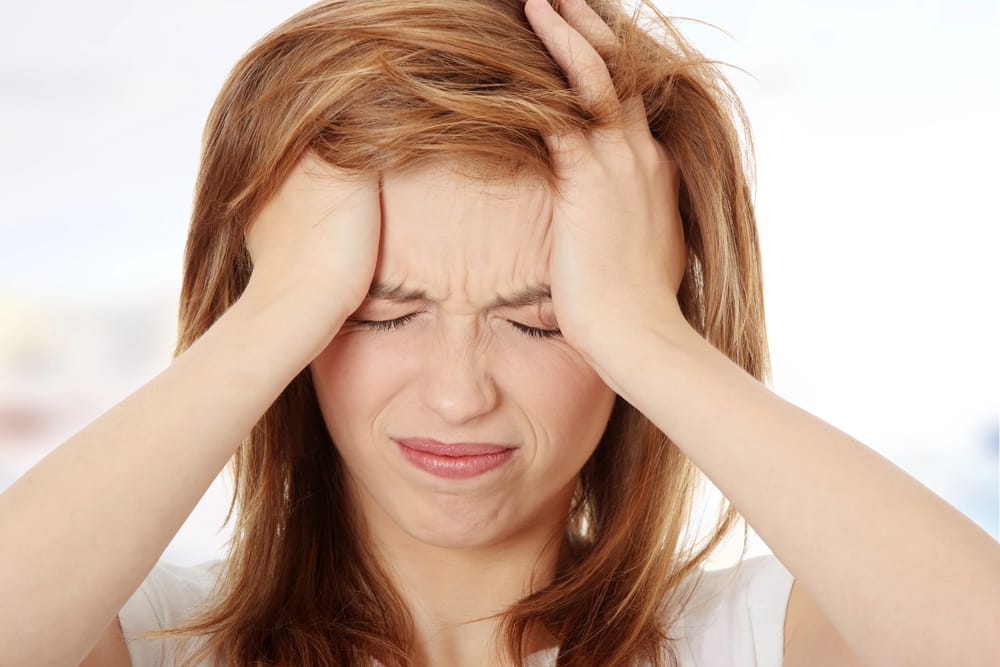We all experience stress at times throughout our lives. However, not everyone experiences it in the same manner. Frequently it can take a toll on our mind, but it can also affect our body. Occasionally physical symptoms can present from stress which is your body’s way of telling you that you’re under too much stress.
Whether you have physical signs, mental and emotional symptoms, or both, finding healthy ways to cope with the stress can help you find relief.
Common Types Of Physical Pain And The Effects Of Stress On Physical Health
You might be stressed and not even realize it, as physical signs of stress can often go undetected. If unsure, talk to your doctor to rule out any physical health issues but if the following symptoms sound familiar, stress could be to blame:
- Dry Mouth And Trouble Swallowing
Stress can reduce the production of saliva. This can cause a dry mouth and make it difficult or uncomfortable to swallow.
- Hair Loss
Hair falls out naturally all the time: Hair grows, takes a little rest, and falls out to make room for new hair. Each hair is in a different phase of this cycle. Stress can cause more hair to enter the resting phase at once. This can lead to increased, more noticeable hair loss.
- Stomach Upset
Stress can cause physical symptoms of all types, including gastrointestinal symptoms like abdominal pain, heartburn, nausea, diarrhea, and constipation.
- Muscle Aches And Pains
Stress can cause your muscles to tense up—and over time, that can lead to pain and soreness almost anywhere in the body. Often, you’ll feel stress-related aches and pains in your neck, back, and shoulders.
- Jaw And/Or Ear Pain And Headaches
Many people unconsciously clench their jaws or grind their teeth when they’re under stress. This can cause uncomfortable tightness or soreness.
- Incontinence +/- Pelvic Pain
Similarly, when we clench our jaw/grind our teeth we also tense our pelvic floor musculature. This is often an unconscious thing; our body is in fight or flight mode. The prolonged shortening of muscles leads to the weakening of muscles. This goes for all muscles in the body, however, the pelvic floor musculature is responsible for stopping urine flow. If they are weak, you can experience urine dribbling throughout your day, losing urine when physically active, losing urine with a cough/sneeze and/or laugh. It can also lead to issues with urge (when you get the urge to urinate or defecate you can’t hold this very long at all and if you aren’t close to a restroom, you might be in some trouble. Pelvic pain can also arise due to the chronic shortening of this musculature. This can happen in all genders.
Pelvic floor Physiotherapy is very effective in treating incontinence and is a specialty Physiotherapy service we offer at Fit4Life Physiotherapy.
- Lightheadedness And Dizziness
Stress can raise your heart rate and cause rapid, shallow breathing. This can make you feel dizzy or lightheaded.
- Lack Of Sexual Desire
Stress can cause hormonal changes. These changes can lead to decreased sex drive, erectile dysfunction, irregular menstrual cycles, and missed periods.
Managing Stress To Alleviate Physical Pain
Fortunately, you can do some simple things to help relieve stress. These small acts of self-care can have mind-body benefits in the moment and over time. After all, everyone, you cannot pour from an empty cup!
- Eat Right And Stay Hydrated
When you’re stressed, it’s easy to abandon healthy habits but they can make a big difference in how you feel. Keep healthy foods on hand. Cut back on sugar, caffeine, and alcohol and drink plenty of water.
- Prioritize Exercise
Exercise is key to managing stress and can alleviate many symptoms. Any type of physical activity can help. The benefits are immediate, and they’ll become even more noticeable over time, as these results cumulate.
- Get Outside And Into Nature
Many studies show that getting outdoors can help relieve stress, along with anxiety and depression. Spending just 20 to 30 minutes in nature is effective.
- Explore Mindfulness Meditation
Mindfulness meditation is a popular way of managing stress. Sit quietly, focus on your breathing, and pay attention to the present moment. Research suggests this can reduce levels of stress hormones. There are many guided meditation apps and there are videos you can search for online—some are even free!
- Connect With Others
Connecting with family and friends and keeping relationships strong can help you cope with stress and become more resilient. And the benefits go both ways. Supporting someone else can boost your mood and enhance your well-being. Make plans to meet up or catch up over the phone, video chat, or even with a text.
- Get Creative
Studies have shown that spending time being creative can help reduce stress. It doesn’t matter what you do. Whether it’s painting, writing, listening to music, or other activities. As long as you enjoy it, it can really help reduce stress!
- Choose Positive Ways To Cope
Some things like drinking, overeating, or smoking may help in the moment. However, over time, they can be harmful to your health. They can even cause problems that make stress worse. Developing new, healthier ways of coping can help break this cycle and provide greater, longer-lasting relief.
Ideally, over time, these healthier choices will become your new go-to activities for stress relief.
“Take care of your body and it will take care of you!”—F4L

